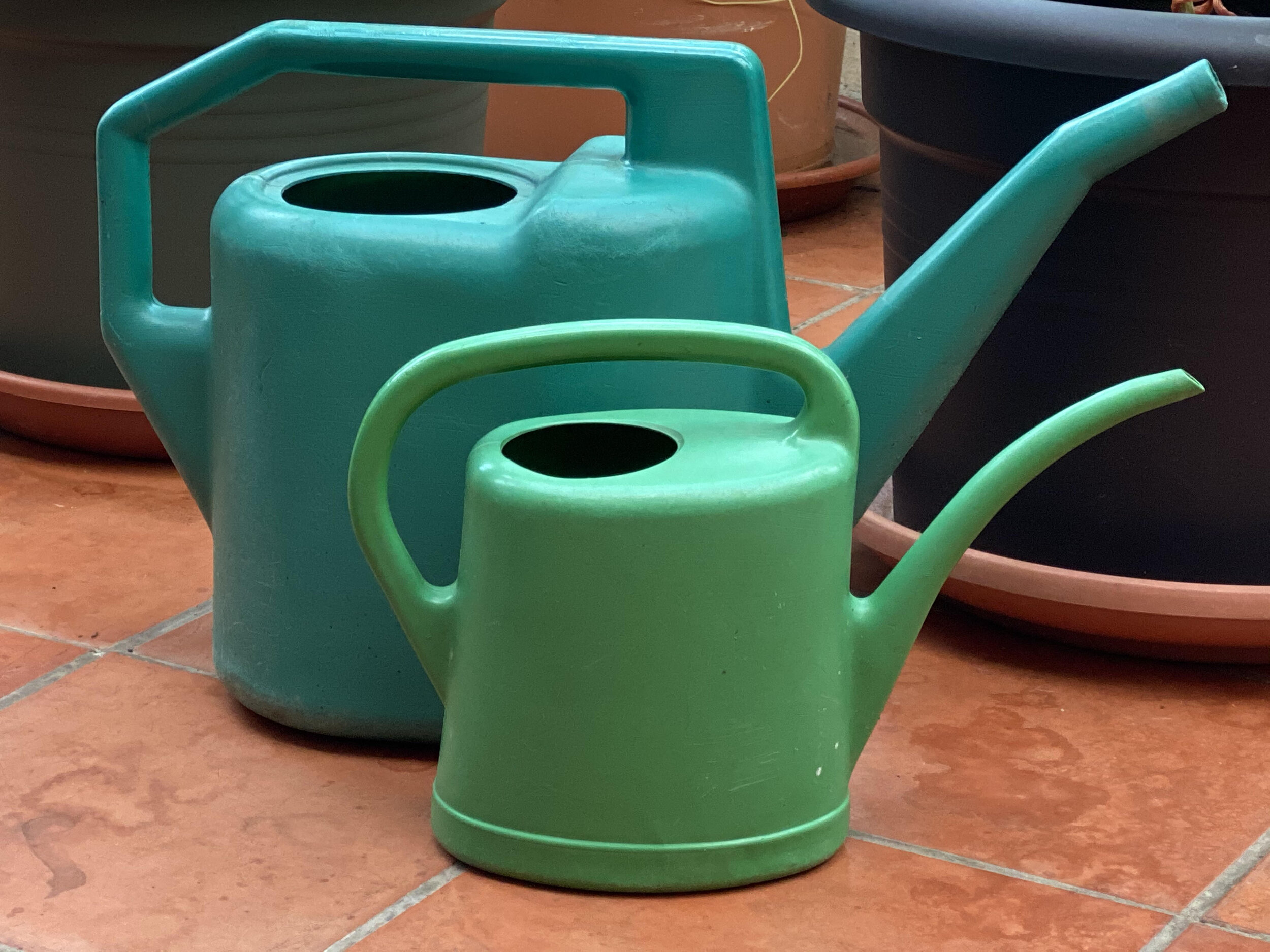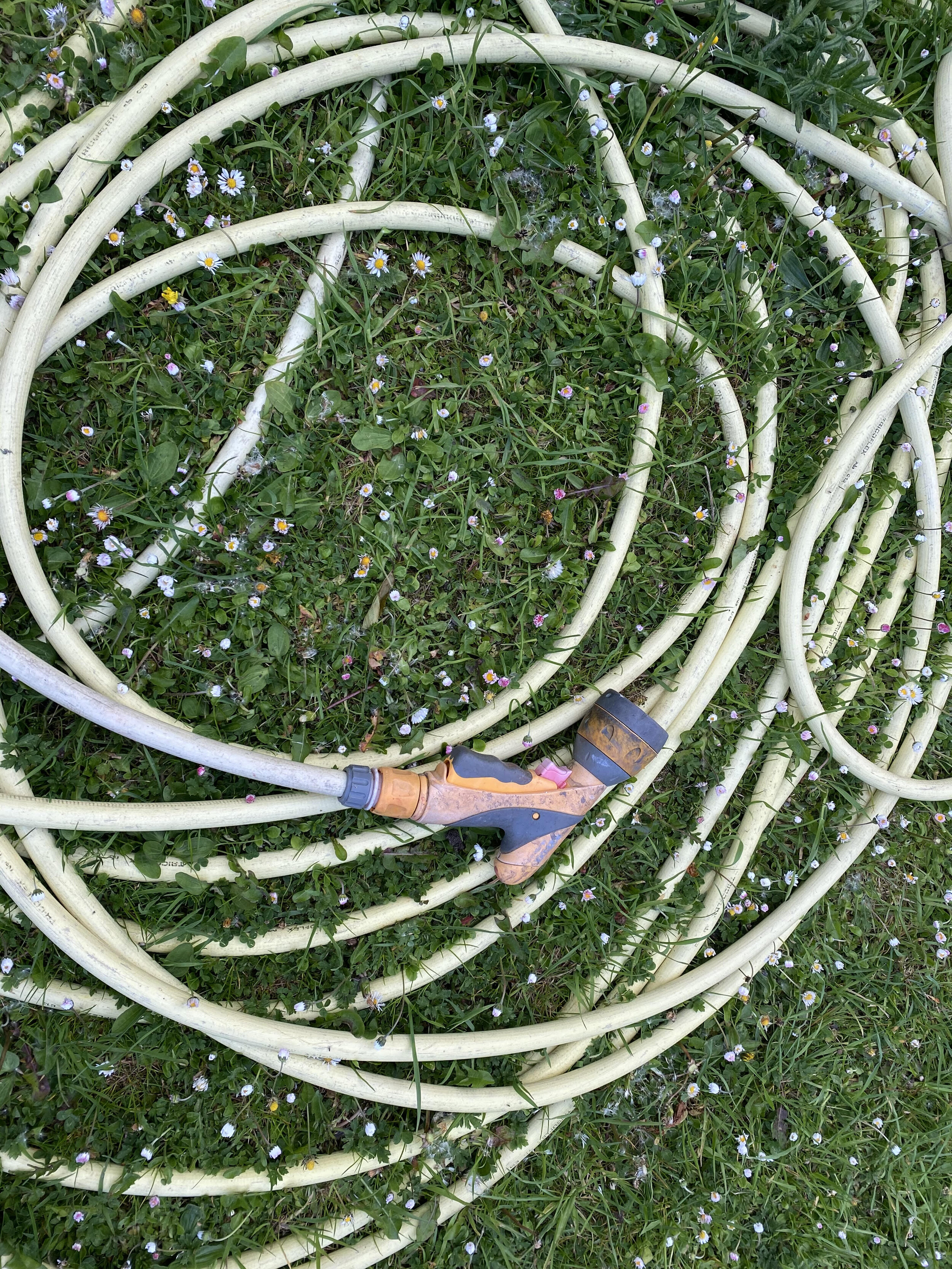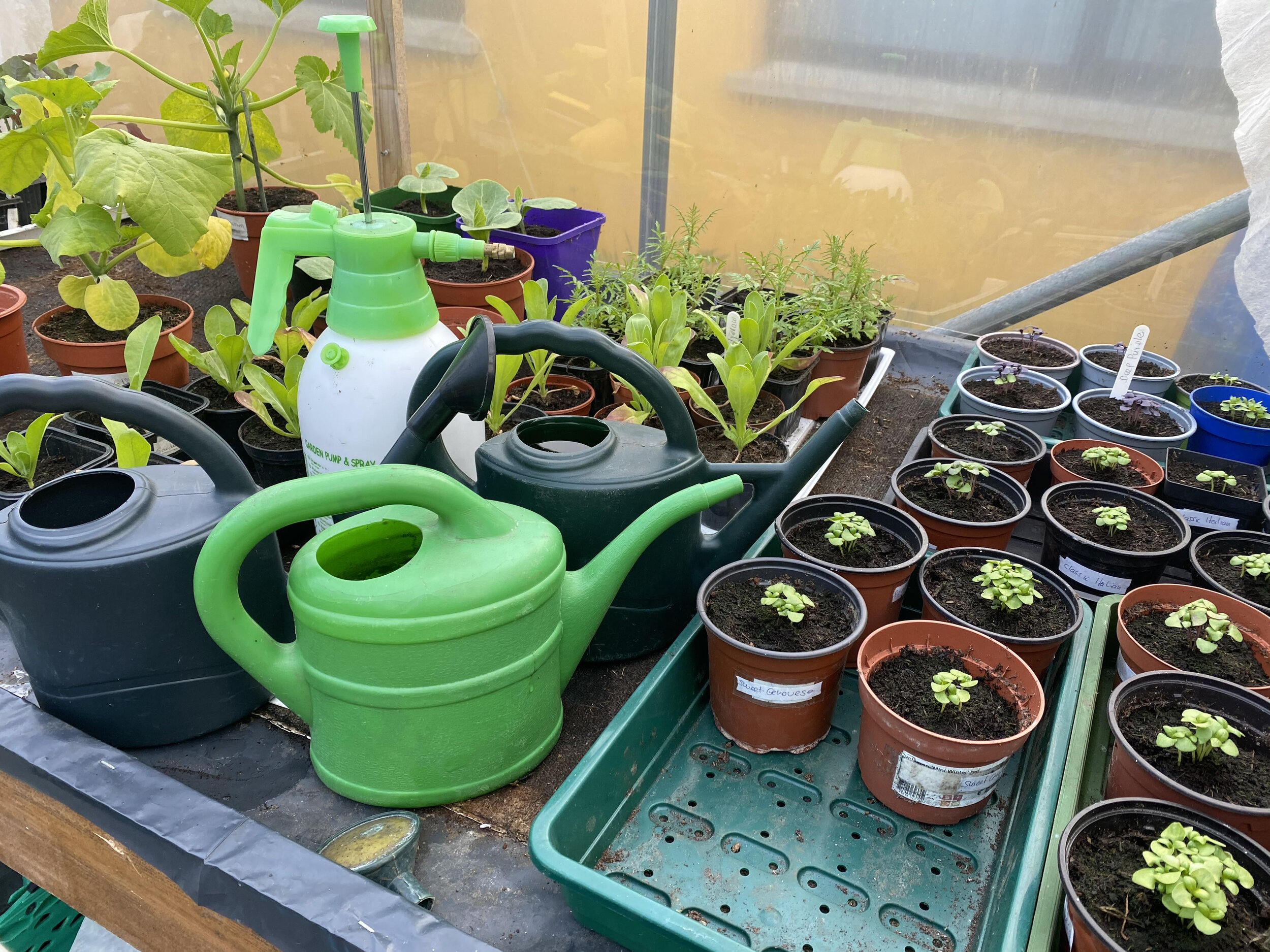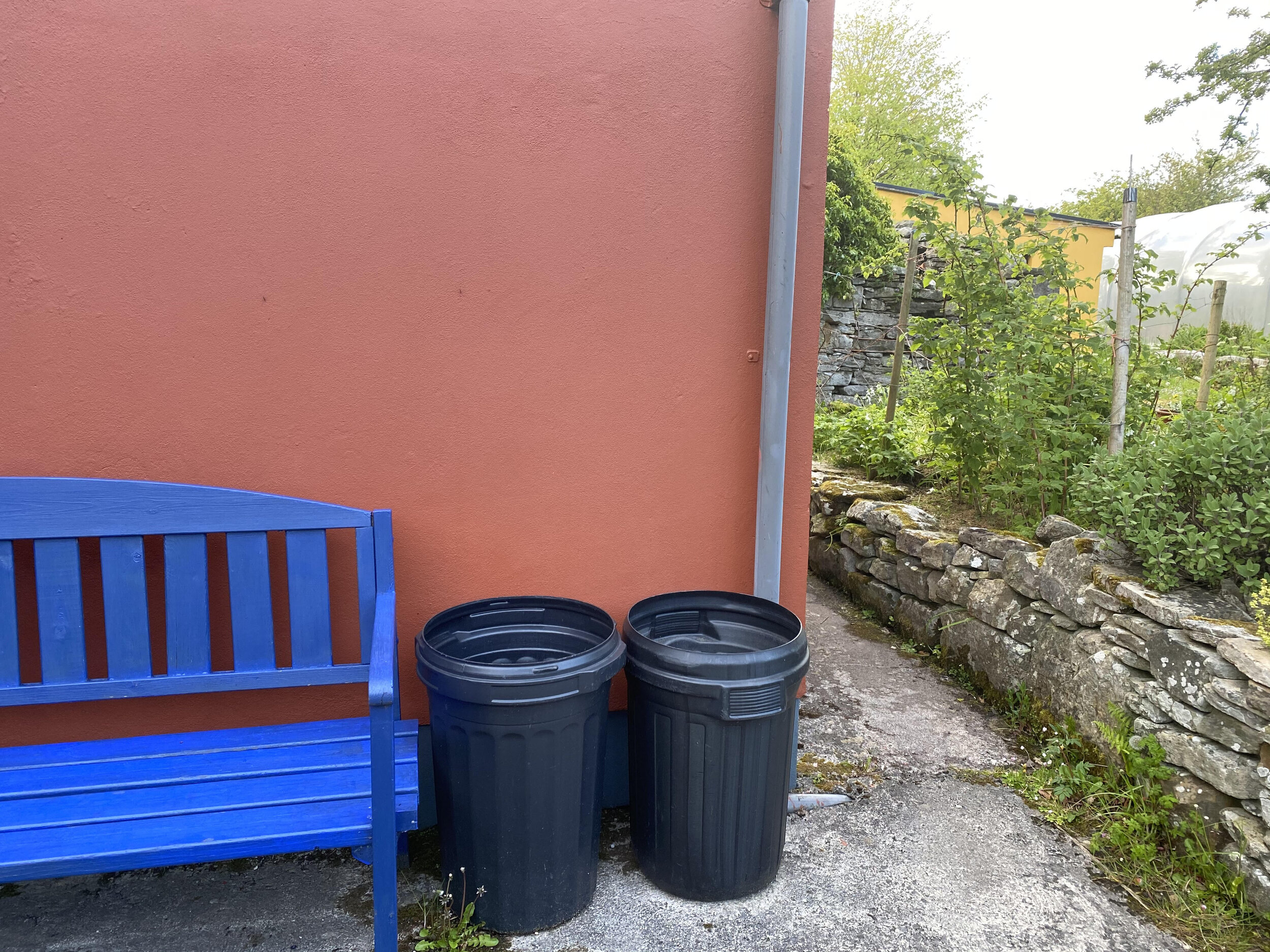To water or not to water?
Cucumbers in pots might need daily watering, we also spray water with a spray gun onto the leaves when it gets very hot in the conservatory.
We asked five experts about watering:
“Watering is rarely necessary outdoors in the West of Ireland. The only time you may need to water is after transplanting your seedlings outdoors” – Klaus Laitenberger
“As well as weeding your plot, one of the main summer preoccupations is watering your plants. Some require more than others” – Alan and Jackie Gear
“Even in the apparently wet climate in the British Isles, most vegetables benefit substantially from an increased supply of water, particularly in the drier regions of the country” – Joy Larkcom
“Watering depends a lot on your soil conditions” – the late Jill Scott
“Get to know your garden, the soil, the plants and water accordingly”
– Mary O’Connell
Five experts, five opinions. So what are we supposed to do? My answer is simple: Become your own expert in watering. Here are a few guidelines.
Save rainwater
Collecting rainwater in butts and tanks is the most environmentally friendly option. Rainwater is best for watering plants, it contains no chlorine and is soft. We save rainwater from the roof of our school in three 1000 l tanks. Remember: A polytunnel in the summer will consume a lot of water!)
What to water
Seeds need water for germination. You can water the ground or seed compost in advance. For watering seeds, you need a fine rose for your watering can.
Transplants should be transplanted into moist soils and watered until they are established. If you transplant on from modular trays to pots, young plants should be watered regularly.
Plants need water to suck up nutrients from the soil. Quick-growing leafy vegetables like salad crops or spinach need more water than root crops and other plants with deep roots.
Each plant has its own water needs. Water mainly stimulates leaf growth, which means that root crops, for example, could produce excessive leaf growth if over-watered. I find that root crops grown organically tend to develop good root systems to go in search of nutrients.
Peas and beans need water especially at the stage when fruits start to swell.
All crops in polytunnels and under cover need regular watering
How to water
It is generally accepted that watering thoroughly every few days is better than to water a little and often. We rarely water in our outside garden so the plants will hunt for water and develop a strong root system. If we do water in the outside garden, we give the plants a good soaking. If in doubt put your finger in the soil and check.
Don’t water the leaves, but water around the roots. Young carrot seedlings and all other seedlings can be watered with a fine rose. Try to avoid watering in full sunshine, as it might scorch the leaves.
With fruiting vegetables (tomatoes, cucumbers, beans and sweet corn) the critical time for watering is when the plants are flowering and the fruits are swelling. This is also the time when they benefit from your home made comfrey liquid (potash) fertiliser.
Watering in a polytunnel
is essential and here is what we do: We use 10 l watering cans, which is labour intensive, but qualifies for a workout. We find this is the simplest way and most connected to the individual plants and their different needs. For example, tomatoes will get five to six litres each, lettuces much less.
We
water early in the morning
water around the plants, straight to the roots
water heavily (no rose!)
water 3 times a week (Monday, Wednesday, Friday and flexible at the weekend)
In the polytunnel: Don't let plants wilt from under watering and don't over water, which causes water logging and blocks air around the roots. Be aware of individual plant’s needs. Directly sown seeds need to be kept moist and very young plants might need watering daily initially.
Tools for the job
Our watering tools are ten-litre watering cans with a medium and a fine rose and a hose with a spray gun, that can provide mist as well as a full single jet spray. If you have a lot of permanent polytunnel crops like tomatoes, cucumbers, peppers, aubergines and chillies, which have roughly the same water requirements and are in the same spot for a few months, a drip feed watering system with perforated rubber tubes, buried under ground close to the roots are a good options. (Most likely requires to be connected to the mains water as regards of generating sufficient water pressure.)
Picture 3 shows kids watering cans for seedlings on the heating bench>
Watering philosophy: Young plants are like teenagers
Finally, here’s a little bit of my own watering philosophy: Young plants which have left the cosy environment of the propagation shed or hardening off area and are planted in the garden need a good watering in, but regular watering in the outside garden will make them dependent on us gardeners. It is much better to let them find their feet and develop roots to look for water and nutrients. Occasional help, especially in dry spells, is needed and allowed.
Think of young plants like teenagers who go off to college. We drive them to Dublin and make sure the flat has power and water and occasionally bail them out, if they are in trouble. However, if we continue do all their washing and cooking at the weekend when they come home, they will always come home and won’t learn how to turn on the wash machine and cook dinner! They need to find their roots elsewhere, as do the young plants in the garden. In the process of searching for water young plants develop their root system and become independent, strong and mature plants, which can look after themselves, much as we like our teenagers to develop into independent humans.
Happy hardening and watering!






